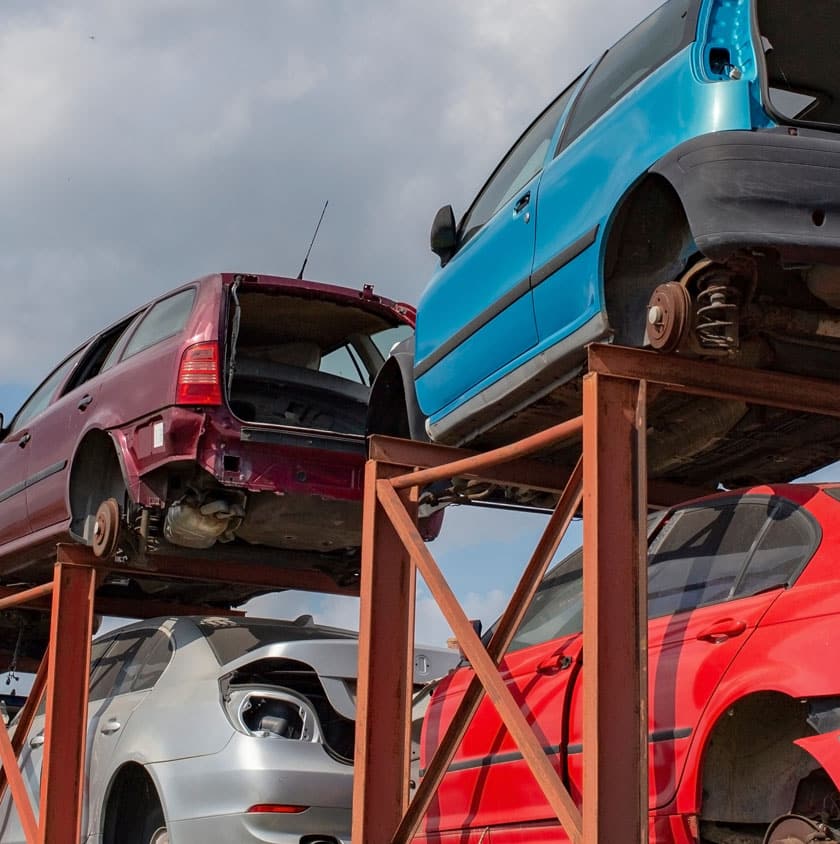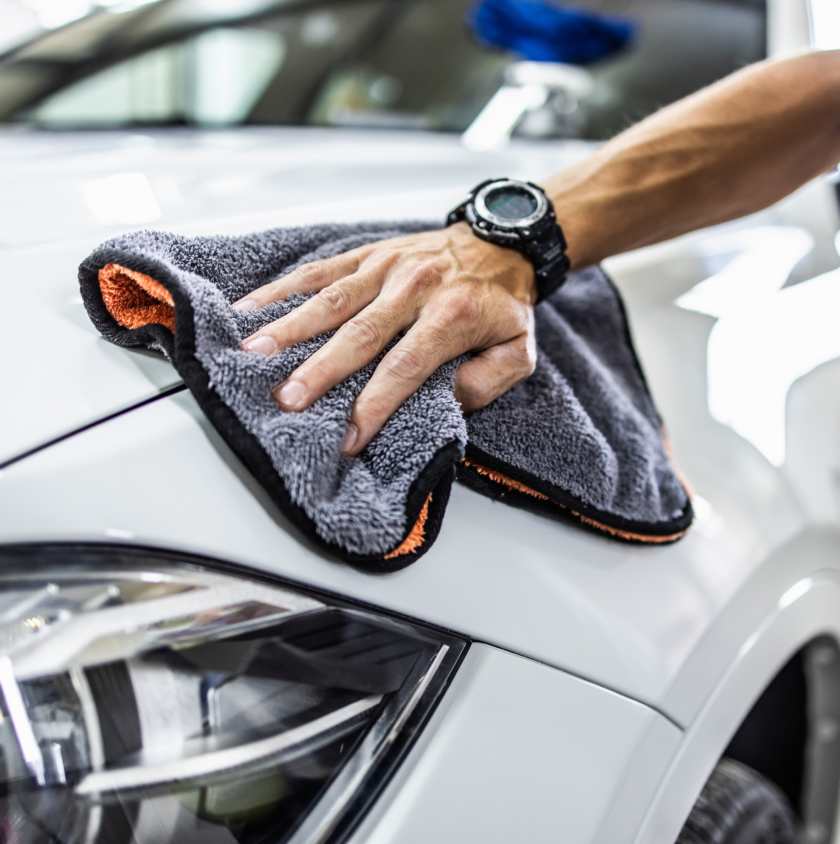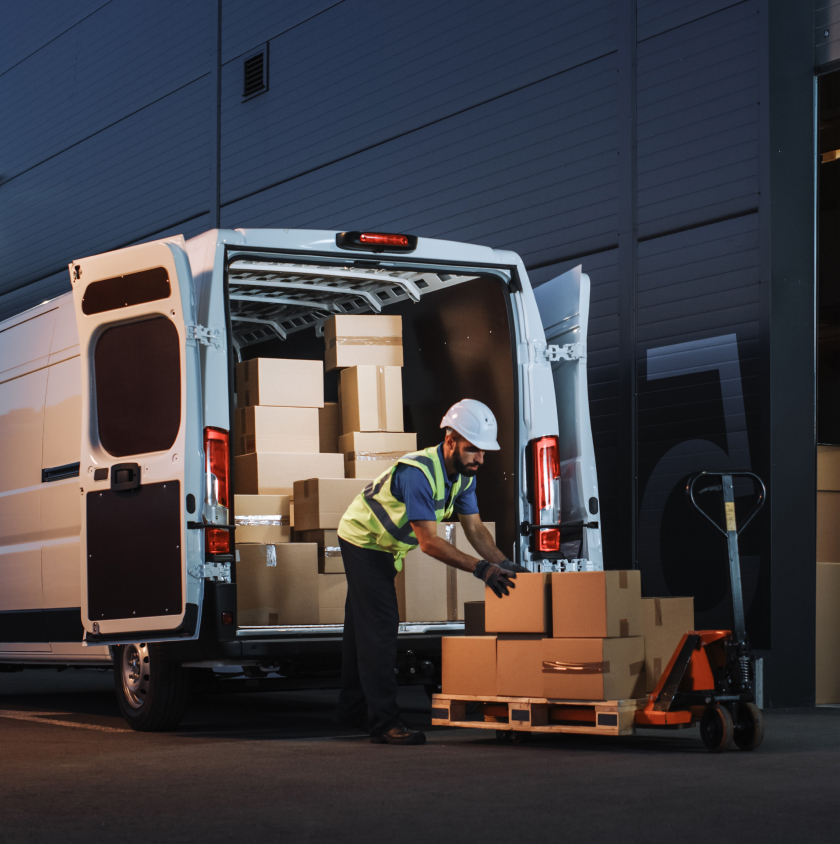
Scrap Dealer Insurance
Compare Scrap Dealer Insurance Quotes
- Complete one short form
- Quickly compare quotes
- Find a great deal today

Compare insurance quotes from top UK’s leading motor trade insurers including:
Why Compare Scrap Insurance Quotes At SimplyQuote.co.uk?
SimplyQuote’s online comparison tool, provided through its partnership with Quotezone, simplifies the entire quote-sourcing and comparison process—and it’s completely free to use!
Skip the hassle and stress of comparing numerous scrap metal insurance quotes from multiple UK insurance providers and streamline the process with SimplyQuote.
Whether you’re a full-time scrap dealer or occasionally dabble in scrap metal removal part-time – you can’t go wrong with SimplyQuote on your side!
What Do You Need To Get A Quote?
Before you can get a scrap insurance quote, you’ll need to provide the following information:
- Personal details: Name, surname, UK address
- Business details: Nature of your scrap metal business, physical address, business type (e.g. sole proprietor, partnership, etc.), company registration details, working hours, relevant scrap metal licences
- Vehicle details: Type of vehicles used (tipper truck, cage trucks, etc.), vehicle registration details
- Driver details: Name, age, UK/EU driving licence
Why Do You Need Scrap Metal Insurance?
You need scrap metal insurance if you’re a scrap dealer or scrap metal merchant in the UK. More specifically, you need scrap dealer van insurance if you collect and transport scrap metal within the scrap metal industry.
Scrap metal insurance is designed to protect against unforeseen accidents or mishaps that could occur during your day-to-day operations. For instance, compensation with regards to damage to your business premises, equipment, machinery or tools that are essential for your business to run.
Insurance can also cover you if one of your employees or a member of the public sustains injuries in your scrapyard or as a result of your business activities.
Scrap insurance policies can be tailored to match your day-to-day operations.

Looking for scrap dealers insurance? Get a quote today!
Get QuotesWhat Does Scrap Metal Insurance Cover?
Let’s take a closer look at what scrap insurance covers:
Insurance while on the road
- Van insurance covers scrap metal dealers’ commercial vehicle transporters. It’s best to check the fine print for van insurance though as some providers may not cover cage trucks or other heavy goods vehicles (HGVs). Any vehicle transporting over 7.5 tonnes of scrap metal needs specialist insurance.
- Road risk insurance is the most basic level of cover you need when operating vans that you don’t own. For example, if you rent vans to transport scrap metal from A to B. Even though much of the metal you transport may not be roadworthy, it’s advisable to have road risk insurance in case you need to transport Category N write-off vehicles. These cars are deemed “cosmetic” write-offs (by insurance companies) but are still functional.
- Trailer insurance can be added to basic third-party and third-party, fire and theft policies if you use trailers as part of your business operations. It may be included in fully comprehensive plans but needs to be confirmed with your chosen insurance provider.
Protection for tools, goods and business premises
- Commercial properties: Just like any company, it’s important to consider taking out insurance for your business premises, including office buildings, scrap yards or storage units. Commercial property insurance covers you for unfortunate events like fires, floods, theft, burglary and vandalism.
- Tools and equipment: You can take out insurance that protects tools, specialist equipment and machinery that you and your employees use in your scrap yard or out on the road.
- Goods in transit: It’s also a good idea to organise insurance cover for the goods that you are transporting. This would ensure the scrap you pick up and transport back to your yard is covered while in transit.
- Business interruption cover: This offers protection should your business operations come to a standstill due to unforeseen reasons (flooding, fire, extensive property damage due to a burglary). You’ll receive compensation for lost income and can get help with ongoing expenses.
- Employer’s liability cover: If you employ staff – full-time, part-time or casual – you’ll legally need employer’s liability insurance. This covers your business in case an employee is injured at work and requires compensation.
- Public liability cover: Similar to employer’s liability cover, public liability cover will cover legal fees and compensation if a claim is brought against you by a member of the public (a.k.a third parties). This type of cover protects your business if someone is in an accident at your scrapyard or is injured because of your business activities.
- Product liability cover: You might also want to take out product liability cover, particularly as you will be dealing with scrap parts you cannot vouch for. Product liability insurance provides covers in cases where you replace vehicle components which turn out to be faulty.
- Environmental liability cover: This policy covers clean-up costs and damages caused by pollution or contamination of third-party properties, such as soil and water sources. Environmental damage is quite common in this line of business.
- Unnamed/uninsured drivers
- General wear and tear on your transport vehicles (e.g. tyres)
- Deliberate damage to scrap metal items or vehicle transporters
- Damage caused by driving under the influence of drugs or alcohol
- Negligence (leaving keys in the ignition and vehicles are stolen)
Liability cover
What’s not covered by scrap insurance
What Levels Of Scrap Insurance Can You Get?
While there aren’t different levels of scrap metal insurance per se, there are three main levels of road risk insurance you can opt for:
Third-party only (TPO)
Offers protection against third-party claims should someone of the general public (and/or their property) become injured or damaged by one of your vehicle transporters. This is the bare minimum road risk insurance required by law.
Third-party, fire and theft (TPFT)
This level of cover will compensate you if your vehicle transporters are damaged in a fire or are stolen, as well as basic TPO cover.
Fully comprehensive
This is the maximum level of road risk cover you can get. It includes both TPO and TPFT levels and covers medical expenses (should you/your drivers sustain injuries) and repair costs of your transport vehicles if they’re in an accident.
What types of scrap insurance are available?
- Combined liability insurance protects you against third-party claims caused by your operations. For instance, if a person of the general public suffers an injury whilst at your scrap metal business, public liability insurance covers their medical expenses and legal fees. It also protects you against employee claims (i.e. employer insurance) who suffer work-related injuries or illnesses.
- Fleet insurance is ideal if you own multiple transport vehicles that carry scrap metal. For instance, scrap dealers with a fleet of vehicles (3+) can opt for this type of policy. Fleet insurance will typically cover vehicles ranging from scrap lorries and recovery vehicles to skip trucks and trailers.
What Is The Cost Of Scrap Metal Insurance?
While the exact costs of scrap metal insurance will vary, as it depends on the nature of your business and which vehicles you use, we can provide insurance estimates for mandatory road risk insurance:
Note: Occasionally, scrap metal insurance is referred to as “breaker’s yard” insurance (another term for “scrapyard”).
| Cover Type | Annual Cost (£) |
|---|---|
| Third-party only | £318 |
| Third-party fire and theft | £382 |
| Fully comprehensive | £477 |
What impacts scrap insurance premiums?
- Nature of your business
- Location of your business
- Number of employees and business size
- Type of vehicles used (make, model, emission levels, if you own or hire them)
- Transport vehicle driver age (drivers under 25 result in higher premiums)
- Claims history
- Optional extras you want
- Level of cover chosen (TPO, TPFT, comprehensive)

How Can Scrap Metal Dealers Get Cheaper Insurance?
Let’s have a look at a few ways scrap dealers can get cheaper insurance premiums:
- Regularly service transport vehicles to prevent wear and tear.
- Secure vehicles in a locked garage overnight to minimise the chances of burglary, theft and vandalism.
- Only insure a few named drivers on your policy.
- Increase your voluntary excess.
- Ensure scrapyards and offices are secure with alarms, burglar bars and CCTV cameras.
- Pay premiums annually to avoid monthly interest charges.
- Hire experienced drivers (over 25).
- Compare various scrap insurance quotes with the online comparison tool.
How To Compare Scrap Insurance Quotes At SimplyQuote.co.uk?
It’s easy for motor trade businesses carrying scrap metal to compare insurance quotes via SimplyQuote:
- Fill in a quick questionnaire: Provide a few personal and business details.
- Choose optional extras: Choose which additional cover you want to include.
- Compare quotes: Find and compare quotes quickly and effortlessly.
- Save money: Start saving on your scrap insurance premiums today!
Frequently Asked Questions
Scrap metal insurance is a type of commercial insurance that is specifically designed to protect scrap businesses from financial loss.
Yes, anyone operating in the scrap metal industry is legally required to have scrap dealer insurance. This means, anyone carrying scrap metal, whether full- or part-time, needs this type of cover.
According to the Basildon Council’s Scrap Metal Dealer Policy, scrap metal dealers are defined by:
- Recovering parts from motor vehicles that are salvageable (or from motor trade businesses) for reuse or selling the remains of vehicles for scrap.
- Purchasing written-off cars to repair or resell.
- Selling or purchasing motor vehicles that will undergo any of the activities mentioned in (1) or (2).
Site licences in the UK are approximately £468. You could face a £5,000 fine if you do not have the required licences in place.
Related Insurance
Written by Chris Richards
Page last reviewed on 17th January 2025 by Chris Richards